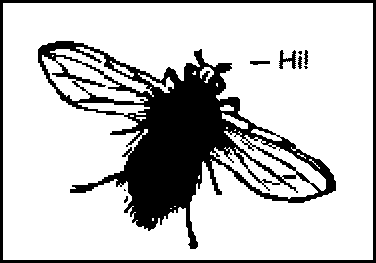Recipes for Daily Living,
Celebration and Ceremony
Elizabeth Esther Kelly
(Snow Lion)

So I had this one pegged for a collection of recipes for yak stew, yak butter, fried yak, yak tea, yak crepes and yak flambée. I was wrong.
There is Momo (Steamed Dumplings --- Beef, Tofu, Cabbage, or Potato filling) and Ngo Tse (Steamed Greens) and Simong Sak Cho (Grilled Mushrooms). There is Pa Tuk (Sweet Noodles) and Tsa Tofu Tuk (with Spinach) and Gong Tuk (Egg Soup). There is Dey Yen (Crispy Rice) which is so easy I might try it tonight (I'll let you know).
The show-stoppers are the whoppers. Chang --- Rice Wine --- takes yeast balls, some tsampa --- Roasted Barley Flour, the staple of Tibet --- along with ten cups of rice and eighteen cups of water. It comes out, the author tells us, looking somewhat like oatmeal, and is sweet: "the sweetness depends on the hand that made it." Heat it to serve it but don't boil it, lest you boil away all the alcohol.
The recipe for tsampa requires twenty-five pounds of hulled barley which you cook in hot sand, clean, pound, and grind. There is also a chapter on how serve a lama --- give him the best seat in the house --- and how to make ceremonial offering cakes. There is even one on "deep fried cookies."
Not a word about yak or yak-butter, which I have always wanted to slather on a piece of toast for breakfast. Just to try it out with my Cocoa-Krispies.
Of Flies
Lydie Salvayre
June Kuntz, Translator
(Dalkey Archive)

- Since Mama's death, my father has been living alone. He's dirty. He smells like piss. His fingernails are long and black, like the claws of some beast.
But he can no longer frighten his son, the narrator of The Power of Flies. "The only human thing about my father, Doctor, is his maliciousness."
The book is a series of discourses addressed by the prisoner to the judge, the psychiatrist, the warder. It is a ramble from a man incarcerated for murder. Besides lectures (or asides) on his dreadful father, his much-put-upon mother, his even more put-upon wife, he talks constantly, endlessly, non-stop about ... Blaise Pascal.
Who? O that Blaise Pascal, the one who wrote the Pensées. See, this ranting murderer worked as a guide at the Pascal Museum at Port-Royal des Champs. And after working there for some time, and pissing off his boss, and his fellow guides, and some of the tourists, he left, became an embittered ne'er-do-well, like his father, until it was time for him to do his murder. On guess who?
I don't know what to say about Flies. It's all very French. La Nausée. The Plague. The Flies (the other one, by Sartre: Les Mouches). That peculiar French disenchantment with family, mankind, the world, most of all, the self: a capacious (if not captious) intellectual self-loathing.
One of the Pensées says that man's heart is, in the parlance of our times, full of shit. Another, that man is "an imbecile worm of the earth; depository of truth, and sewer of error and doubt; the glory and refuse of the universe."
O these depressing (and depressed) French self-abusers. In the interest of being your conscientious reviewer, I waded through all too many of the Pensées. Never again. I should have gone to the zoo instead. Or to bed. Or the latest concert with The Idiot, or, more fitting, Perfect Strangers.
Or maybe, according to Pascal, I should not have given it a thought: "All great amusements are dangerous to the Christian life; but among all those which the world has invented there is none more to be feared than the theatre."
Pascal is all very 17th Century Enlightenment. And his religious exhortations are not much more exciting than those of Creflo Dollar or Benny Hinn. "It is not disgraceful for man to yield to pain," wrote Pascal, "and it is disgraceful to yield to pleasure." He also said, "It is not good to have too much liberty; The Christian religion alone makes man altogether lovable and happy."
- Without Jesus Christ man must be in vice and misery; with Jesus Christ man is free from vice and misery; in Him is all our virtue and all our happiness. Apart from Him there is but vice, misery, darkness, death, despair.
The title of this novel comes from yet another of the dubious Pensées,
- The power of flies; they win battles, hinder our soul from acting, eat our body.
If you are reasonably happy now, do pick up this book, spend some time in the mind of the narrator, or the even more tedious mind of his mentor of the Abbey at Port-Royal des Champs so you can thoroughly rid yourself of any joy-in-life you may be living with right now.